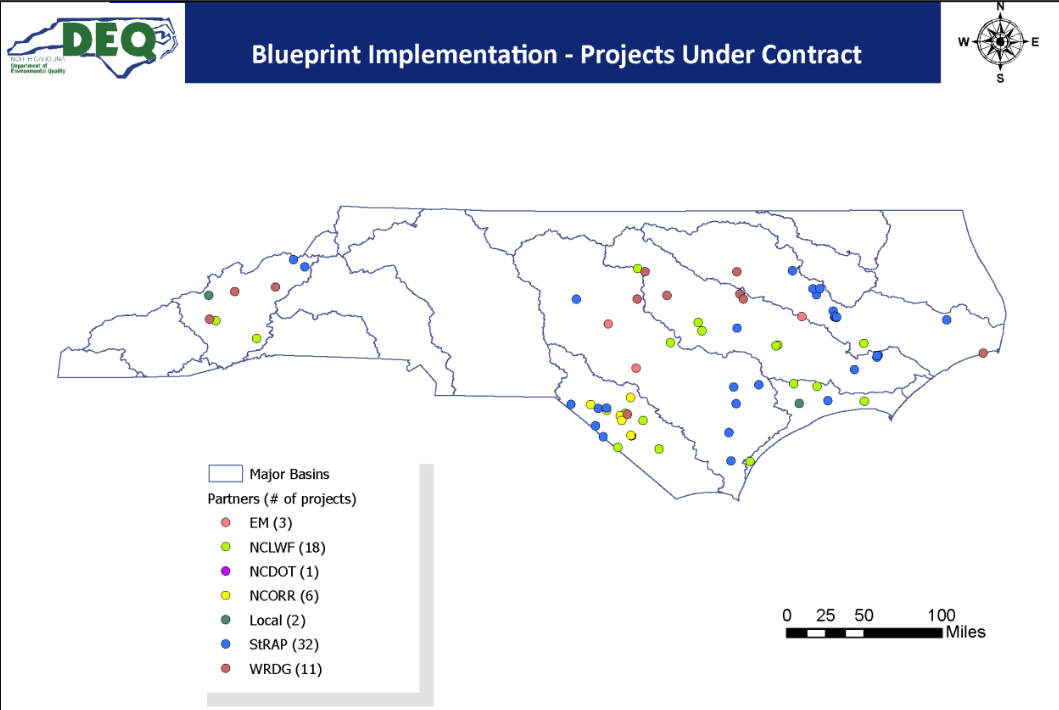
Post has been updated
Gov. Roy Cooper has announced an effort to improve the resilience of new state buildings against flooding, by updating requirements to include nature-based solutions.
Supporter Spotlight
On Tuesday, Cooper issued Executive Order No. 266 directing the North Carolina Department of Administration to update building requirements for new state construction in a floodplain and to develop requirements for new state buildings outside of a floodplain that are at risk of flooding.
“Using foresight and data to protect public buildings and other structures from flood damage is smart and responsible,” Cooper said in a statement. “Climate change is causing more intense storms and flooding so this update on floodplain management and construction requirements will save taxpayer money, protect structures and keep workers safer.”
The Department of Administration has been directed to work with stakeholders and state agencies over the next 18 months to update the state’s Uniform Floodplain Management Policy, which establishes construction standards for state-owned buildings in the floodplain. The policy was last updated in 1990.
“Executive Order 266 applies to new state construction and not existing state buildings. The updated policy that the N.C. Department of Administration will develop over the next eighteen months will apply to new construction at that time,” Aldesha Gore, assistant communications director, with the Department of Administration told Coastal Review in an email.
The updated policy is to mitigate risks for state construction, minimize flood damage while considering the effects of sea level rise and climate change, and support the benefits of natural infrastructure in managing flood risk. Natural infrastructure uses existing natural areas and engineered solutions that mimic natural processes to minimize flooding, erosion and runoff, according to the National Oceanic and Atmospheric Administration. Examples include mangroves, wetlands, oyster reefs, sand dunes, permeable pavement and driveways, and natural areas incorporated into designs.
Supporter Spotlight
Jeremy Tarr, senior advisor for Climate Change Policy for the governor’s office told Coastal Review Wednesday in a phone interview that nature-based solutions are a really important aspect of many of the state’s resilience strategies to promote long-term, cost-effective resilience against more frequent and intense flooding and other natural disasters.
“The current policy does not make significant use of nature-based solutions. But we want to make sure that as the Department of Administration works with NCORR (N.C. Office of Recovery and Resiliency), DEQ and other state agencies, and interested stakeholders, that all tools were in the tool belt, including nature-based solutions,” Tarr continued. “Incorporating nature-based solutions when feasible, will help ensure that new construction is not only resilient itself, but is not adding to flood risk for surrounding communities or downstream communities. And so we’re looking for the updated policy to include strategies aware of the natural hydrology of the area and making use of nature based solutions when it makes sense.”
The Department of Administration also is to evaluate the effects of applying the policy’s requirements to state-funded building projects and expand application of the policy to state-funded projects where feasible.
The executive order builds on the administration’s previous actions starting in October 2018 when Cooper established the NC Climate Change Interagency Council through Executive Order No. 80, to improve the resilience of North Carolina’s communities.







